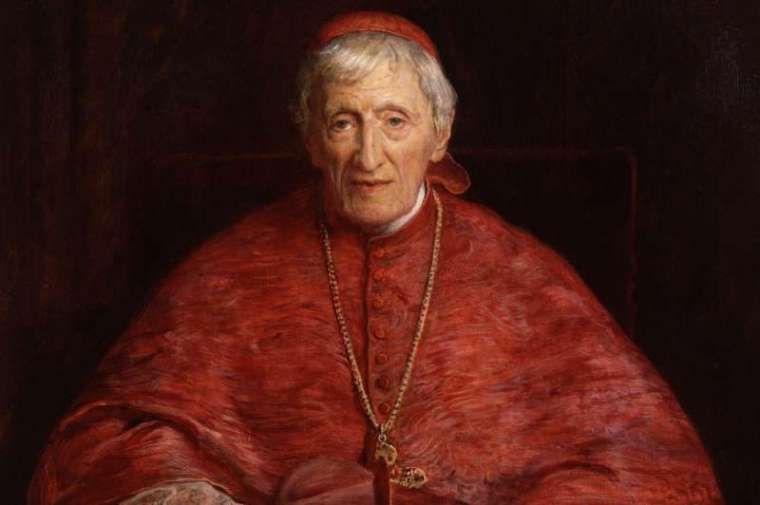Posted on October 6, 2019 View all news
Laudetur Jesus Christus! Gelobt sei Jesus Christus!
Sia lodato Gesù Cristo! Praised be Jesus Christ!
This coming Sunday, October 13, Pope Francis will canonize Bl. John Henry Newman. The Canonization will be held at the Vatican. Cardinal Newman will become England’s first saint in over 300 years. This and next week, I will present excerpts of his biography from the canonization webpage . This way, we will all get to know this new Oratorian saint a bit better. Please don’t forget about all the events coming up next week in celebration. Have a blessed week ahead!

“John Henry Newman was born on February 21st 1801 in London. He was the eldest of six and was the son of John and Jemima Newman. His father was a banker in the city and so John Henry Newman had a middle class upbringing on Southampton Street in Bloomsbury. His family were practising members of the Church of England and therefore Newman was exposed to the Bible at an early age, becoming an avid reader of it. At the age of seven, Newman went to study at Great Ealing School.
At the age of sixteen, Newman became an undergraduate at Trinity College, Oxford. After his undergraduate studies he was elected to a fellowship at Oriel College, at the time the leading college of the university, in 1822.
On May 29th 1825, he was ordained a priest [Anglican] in Christ Church Cathedral by the Bishop of Oxford and became curate of St. Clement’s Church, Oxford. In his time as curate there, Newman became known for visiting all his parishioners, especially the sick and the poor.
In 1826 Newman became a tutor at Oriel college where he began to lecture and tutor students. He took this role extremely seriously, feeling he had a religious duty to guide the young students he had been given responsibility for, to bring them to the zeal for the faith that he had discovered. However, this led the leadership of the college to accuse him of having favourites and so they refused to give Newman students from 1830 onwards.
This gave him additional time for study and here he discovered the Church Fathers, the teachers of early Christianity. Through studying them, the Catholic – meaning universal – nature of the faith, and the line of apostolic succession which had preserved and transmitted it through history became clear to him. He described his reading of the Church Fathers in this way: ‘Some portions of their teaching, magnificent in themselves, came like music to my inward ear, as if the response to ideas, which, with little external to encourage them, I had cherished so long.’
As he continued to study and teach Christian history and especially apostolic succession, Newman began to reconsider his own hostility towards Catholicism. Catholics had been reviled and persecuted in England for centuries after the reformation, but times were changing, foremost with the passing of the of ‘The Roman Catholic Relief Act’ in 1829, which quelled a potential Irish revolution. Nonetheless, Newman strongly believed the Catholic Church to be lacking in holiness, writing, ‘Rome must change first of all her spirit, … if they (Catholics) want to convert England, let them go barefooted into our manufacturing towns, let them preach to the people, like St. Francis Xavier, let them be trampled on – and I will own that they can do what we cannot; I will confess that they are our betters.’” – https://www.newmancanonisation.com/newmans-life
